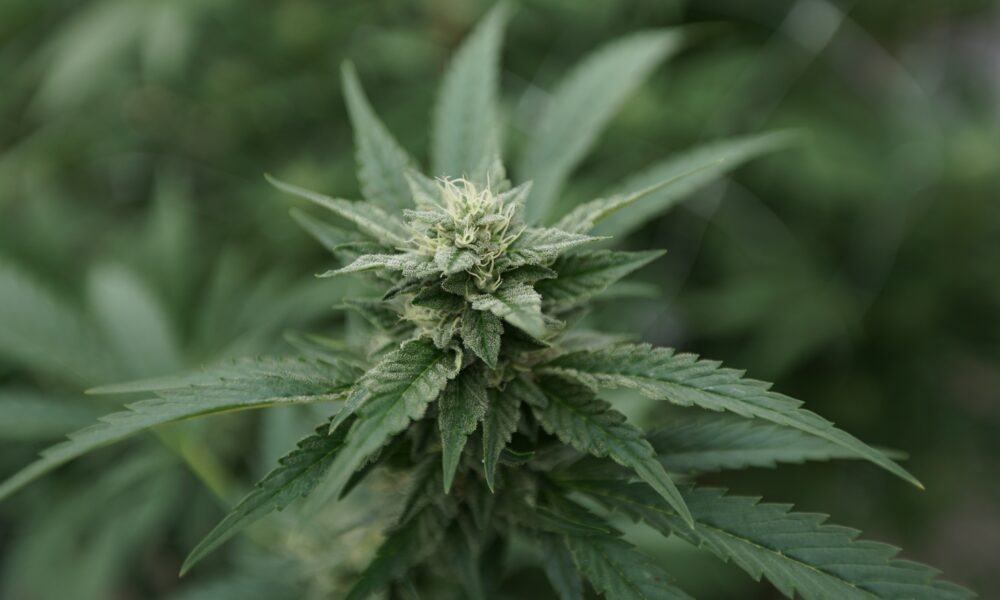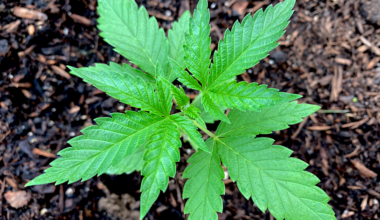A Democratic congressional candidate in Ohio recently deleted a tweet attacking incumbent Rep. Dave Joyce (R-OH) over his scheduled participation in a cannabis conference later this month, saying the fallout wouldn’t “die” over what he described as a misinterpreted post.
Advocates seized on the original tweet following Marijuana Moment’s reporting on the seeming disconnect between Kilboy’s own support for legalization and his critique of Joyce as being out of touch with voters in his district who, he claims, haven’t expressed to him that cannabis reform is a priority issue.
So, last week, the Democratic nominee deleted the tweet, which said:
“If you elect me as your next Congressman, I commit to working for you, which will not include being the keynote speaker at the Benzinga Cannabis Capital Conference. My opponent doesn’t seem to have the pulse of what is hurting us in northeast Ohio.”
He had also posted another tweet clarifying that “my comments have nothing to do with marijuana.”
“David should be spending his time in the district meeting with his constituents—answering for his actions in Congress,” he said. “I’ve yet to talk with a voter who list marijuana as a key priority.” That tweet has also since been deleted.

Via Twitter.
In a phone interview with Marijuana Moment on Friday, Kilboy said that he questions the motives of the Republican congressman, who serves as a co-chair of the bipartisan Congressional Cannabis Caucus and has sponsored several reform bills during his time in office.
“One of the things that interests me the most about his leadership [on marijuana reform] here is that he’s gained a lot of financial support from folks who benefit from his actions. So I question his motive,” he said. “Is it truly because he supports it? Or is it because his campaign financially supports it?”
“I just question his authenticity and if he actually, truly supports this, or if he’s just placating to people that are donating money to his campaign,” Kilboy said.
According to OpenSecrets, Joyce’s 2022 campaign has so far reported receiving $6,500 in contributions from individuals and PACs associated with the marijuana industry. The sector’s contributions rank 51 out of the top 100 industries that have financially supported the candidate.
Kilboy, a retired Naval officer and registered nurse, said that he backs federal cannabis descheduling. And he said that, if he’s elected, he’d be open to having conversations and learning more about the prospects of advancing broader drug policy changes like decriminalization and psychedelics reform.
But asked whether he would assume a leadership position on marijuana reform on Capitol Hill, as Joyce has set out to do, he demurred, saying that he would certainly support efforts to enact a policy change—but that his focus would principally be on mental health and the “root” causes of the overdose crisis. If that legislative focus overlaps with marijuana reform, he said he’d be sure to explore it.

Via Twitter.
When Kilboy posted his initial tweet criticizing Joyce’s scheduled appearance on a marijuana policy panel organized by Benzinga, he said the point he was trying to make is that Joyce has made himself “unavailable” to his constituency, which is a “complaint” he said he’s heard from voters time and time again.
Marijuana, the nominee said, is just not a top agenda item for Ohio congressional District 14—at least based on the conversations he’s had with constituents.
“My point was not that I’m against this or that this is not a priority for Ohio. My point was, no one has brought this up,” he said. “I’ve talked to thousands of voters across five counties starting back in January, and not once has the criminalization of marijuana, or any component of marijuana, ever come up.”
Instead, the candidate said voters in the district are primarily focused on the economy, health care and “saving our democracy.”
In another since-deleted tweet, Kilboy replied to Benzinga itself, noting that he didn’t receive an invite to the cannabis conference.

Via Twitter.
In a statement to Marijuana Moment, a spokesperson for Joyce’s campaign said that “Dave Joyce is proud of his record of introducing common-sense legislation to address concerns from veterans battling PTSD, cancer patients looking for opioid alternatives, and even just parents who want to make sure cannabis doesn’t fall into the hands of their underage children.”
“Until the federal government successfully revises its arcane cannabis laws, he will keep pressing the issue on behalf of his constituents who are directly impacted,” they said.
While Joyce voted against a bill to federally legalize marijuana that passed the House in April, he took issue with specific provisions of the proposal, not the overall idea of ending prohibition. Joyce has stressed the need to find a passable compromise that stands a shot of moving through the Senate with the steep 60-vote threshold.
Accordingly, the congressman has been involved in high-level talks with Senate Majority Leader Chuck Schumer (D-NY) about developing a bipartisan package of incremental marijuana reforms that’s expected to contain measures to safeguard banks that work with state-legal cannabis businesses and facilitate expungements, for example.
And he’s introduced several pieces of modest cannabis legislation this year that could be part of those conversations around the so-called “SAFE Banking Plus” bill.
For instance, one bipartisan measure he filed in April would direct the attorney general to create a commission charged with making recommendations on a regulatory system for marijuana that models what’s currently in place for alcohol.
Another more recent measure Joyce is backing would set a federal cannabis research agenda and create a designation for universities to carry out marijuana studies with federal grant money.
Joyce and Rep. Alexandria Ocasio-Cortez (D-NY) are also sponsoring the Harnessing Opportunities by Pursuing Expungement (HOPE) Act, which would incentivize states and local governments to expunge cannabis records in their jurisdictions.
That last bill is reportedly being discussed as a key component of the in-the-works marijuana omnibus.
In any case, the proposals that Joyce has put forward seem to closely align with Kilboy’s own position on the issue, which earned the Democrat a B+ rating from NORML and raises questions about his contention with the congressman’s participation in the upcoming conference.
There are few details about the content of what Joyce will discuss at the Benzinga event next week, but the panel he’s set to speak at will focus on key pieces of congressional marijuana reform legislation and how social equity intersects with the proposals.
Joyce also spoke at an earlier Benzinga Cannabis Capital Conference in April, where he discussed how his interest in states’ rights and understanding of the medical potential of cannabis led him to advocate for reform on Capitol Hill.
He had just gone through a knee surgery at the time and said that he looked forward to the day when a person could “leave a doctor’s office or hospital” and they’re prescribed cannabis instead of addictive opioid painkiller “that they’re willing to give you as you walk out that door with unlimited refills.”
For what it’s worth, voters in dozens of cities across Ohio have approved local marijuana decriminalization initiatives in recent years, and another round of jurisdictions will see the issue on the ballot this November.
An effort to put adult-use legalization on the statewide ballot in Ohio fizzled out this year, but the campaign did secure a procedural legal win that will allow them to hit the ground running for a planned 2023 reform initiative.
While Democrats are generally associated with a more consistent pro-legalization positions, that hasn’t stopped certain members of the party from taking contrarian positions against reform friendly opponents before.
In 2018, for example, the Democratic Congressional Campaign Committee shared an article attacking then-Rep. Dana Rohrabacher (R-CA) over his “cult-like fixation on marijuana” and said the congressman’s efforts on the issue should be part of the reason that people vote to elect his opponent.
It is also worth noting that the leader of the Democratic Party, President Joe Biden, continues to oppose marijuana legalization despite backing a number of incremental reforms during his election campaign that he has not yet followed through on.
President Biden Discusses Marijuana With Senate Candidate Fetterman At Labor Day Meeting
Photo courtesy of Chris Wallis // Side Pocket Images.
Medical Disclaimer:
The information provided in these blog posts is intended for general informational and educational purposes only. It is not a substitute for professional medical advice, diagnosis, or treatment. Always seek the advice of your physician or other qualified healthcare provider with any questions you may have regarding a medical condition. The use of any information provided in these blog posts is solely at your own risk. The authors and the website do not recommend or endorse any specific products, treatments, or procedures mentioned. Reliance on any information in these blog posts is solely at your own discretion.






